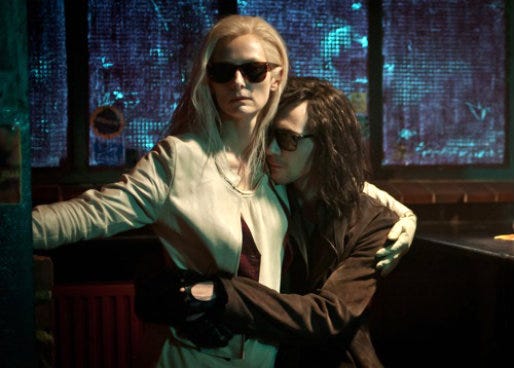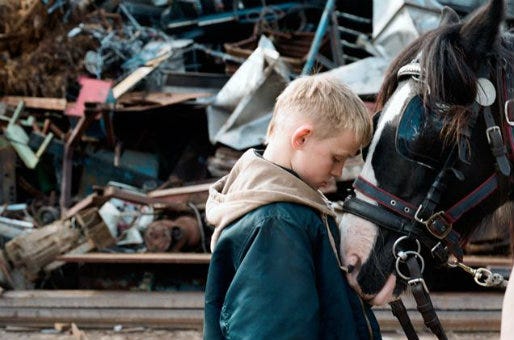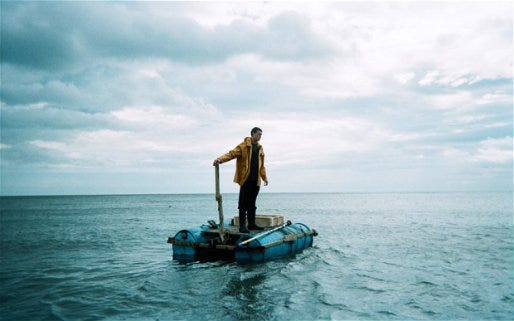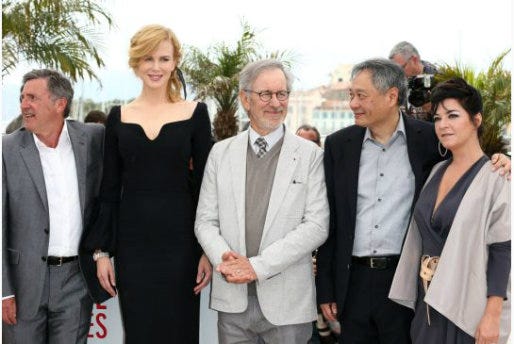British Film Focus
It’s May, so that must mean Cannes is upon us and footage of the glittery festival on the Côte d’Azur has taken precedent over other cinema and film news for the month. This commentary looks at the British contribution to the festival this year, which is somewhat reduced.
"Only Lovers Left Alive"

Not exactly a purely British-funded film, but it’s the only entry from the UK up for the Palme d’Or award at Cannes 2013 and director Jim Jarmusch’s picture makes its debut at the festival.
British actors Tom Hiddleston (“Thor”) and Tilda Swinton (“Burn After Reading”) are lovers Adam and Eve, who have been in a relationship for a long time. A very long, long time. The film is an exploration of the effects of immortality on their relationship and its various trials and tribulations.
Expect a romantic and emotionally involving vamp film closer to “Let the Right One In” rather than “Twilight” which is, well, tween rubbish.
"The Selfish Giant"

Clio Barnard will be showcasing her second film that follows on from her acclaimed 2010 feature, “The Arbor." Inspired by an Oscar Wilde story, “The Selfish Giant" follows Arbor and Swifty, two boy chums excluded from school who collect metal scrap for a local scrap dealer named Kitten (Sean Gelder). Arbor becomes jealous when Kitten picks Swifty as the jockey for dangerous horse-and-cart drag racing —a scene of terrific black comedy that plays a lot like a nightmare.
"For Those in Peril"

The Scottish version of “Life of Pi” follows the story of young Aaron (George Mackay), the lone survivor of a fishing boat accident that took the lives of five men from the his small village.
He returns to find a superstitious community turned against him for being the lone survivor. Written and directed by Paul Wright, “Peril” is a debut feature that explores the pain of survivor’s guilt, managing to wind in the magic of the superstition felt by the locals.
Lynne Ramsay

Decidedly an auteur because of the writer-director-producer credits on nearly all her features, Ramsay is now sitting on this year’s Cannes jury picking the Palme d’Or award with Team Captain Spielberg and director Ang Lee, to name two.
She returns after 15 years, when she first appeared at Cannes in the late 1990s with her graduate short film, “Small Deaths,” which won the Prix du Jury award. Her "Kill the Day," another short, and "Gasman" also won prizes that same year.
Ramsey’s projects always come from an emotional place and, usually with limited dialogue, serve to move the audience with imagery and music. She’s known as the poetic director. A true artiste with artistic temperaments, she was a no show on “Jane Got a Gun” on the first day of filming earlier this year. However, this has done little damage to her image.
There have always been gaps between each project for the Scottish director. Each film for her appears all-consuming and each takes a lot of energy to make. She’s also known as a very slow writer. Due to the intensely creative nature of her work, Ramsay has been put forward by critics as being the next Ken Loach.
There was a near 10-year gap between “Morvern Callar” (2002) and her next feature. Ramsay was all set to make the film adaptation of Alice Sebold’s “The Lovely Bones," having seen a draft of the novel when it was only half-finished.
Unfortunately, the book's bestseller status upon publication meant that a bigger director was required, and Peter Jackson stepped in (making a mess of the story according to critics and fans of Sebold's book). Certainly, it was a true grim fest, leaving the viewer decidedly depressed afterwards.
Ramsay eventually returned with 2011's highly tense, psychological film “We Need to Talk About Kevin." It delves deep into the mother-son relationship and the ideas of nature vs. nurture, following the son’s mass murder of his fellow school pupils. Tilda Swinton and John C. Reilly star as mum and dad with Ezra Miller as Kevin.
“Kevin” shares similar themes with “Rosemary’s Baby” (1968) and “The Omen” (1976) that delve into how the unfortunate parents deal with their evil offspring.
Ramsay’s tense thriller never shows what happened on the day of the event but focuses instead on the aftermath and tries to explain the son’s murderous behaviour through the mother’s understanding of it.


